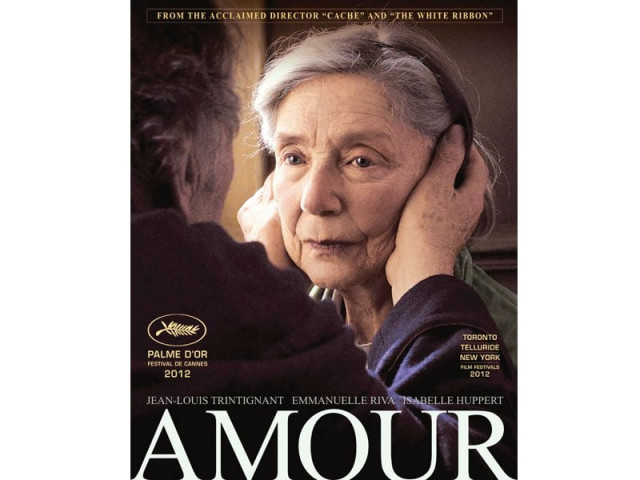Film review: Amour - love in a time of suffering
Amour contains stellar performances and a critical look at the nature of love.

Amour contains stellar performances and a critical look at the nature of love.
Georges and Anne are an elderly couple, retired piano teachers living in a cozy Paris apartment. One morning at the breakfast table, Anne suffers a silent stroke and sits in a daze, unable to respond to Georges. She comes around shortly but has no recollection of the event. She is subsequently admitted for surgery on a blocked artery, but the operation goes wrong and leaves half her body paralysed. As she is confined to a wheelchair with her desire to live waning, Georges does more than he can to care for her. But the true strength of their marriage is tested when Anne suffers a second stroke which leaves her with minimal movement and speech. What follows is a harsh but silent struggle to maintain their relationship in the face of impending death.
Amour is thus mostly a tale of persevering love — a tale of how two people deal with life, death and everything else in between. It is a film that unforgivingly challenges pivotal aspects of our existence and does not shy away from forcing us to face the answers. Amour is a true representation of life, and it is also probably the most undramatic portrayal of it that I have chanced to see in recent times. It speaks volumes about the fragility of life and importance of patience in any relationship. Most importantly, Amour is exactly what any work of art should be: both disturbing and comforting.

Jean-Louis Trintignant (Z) and Emmanuelle Riva (Hiroshima mon amour) in their respective roles as Georges and Anne are the highlight of the film with their spectacular performances. Riva, in particular, earned widespread acclaim and even an Academy Award nomination for Best Actress for it. Haneke has once again shown his intelligent filmmaking skills and has taken some beautiful shots. The principal photography of the film has mostly been kept very fixed, composing of long shots, which go well with the theme. Almost the entire film has been shot in the same apartment. Considering Georges and Anne are both piano teachers, a soundtrack of classical pieces was aptly chosen.
Amour is peppered with many silent moments between the couple which display the burden of their unspoken frustration. There are a few strong scenes but nothing to upset the otherwise calm pace of the film. Since this is a true story based on events in the director’s own family, Haneke explains the crux to be, “How to manage the suffering of someone you love.” There are a number of choices to be made, but it must be up to the viewer to judge them as necessary or selfish. Amour is a must-watch for anyone who appreciates the art of cinema and is best explained by its own title: love.
Strong performances
The White Ribbon
The White Ribbon (2009) is a black-and-white German film directed by Michael Haneke. Winner of the Palme d’Or at Cannes, it is the story of a family and village in Germany just before the outbreak of the First World War. Dark and mysterious in its genre, it has been described as being about, “the origin of every type of terrorism, be it of political or religious nature.”
Z
Z (1969) is a French film directed by Costa-Gavras and starring Jean-Louis Trintignant. Based on a novel and winning multiple Academy Award nominations, it is a political thriller about the assassination of the Greek politician Gregoris Lambrakis and the subsequent military dictatorship in the country. Dripping with satire and dark humour, it is a brilliant watch.
Hiroshima mon amour
This (1959) French film is directed by Alain Resnais. It is a highly innovative and conceptual film; the first to come out of the French New Wave. It is about a series of conversations between a French actress and a Japanese architect concerning ‘memory and forgetfulness’. The film has several flashback sequences and uses the bombing of Hiroshima as a backdrop.
Published in The Express Tribune, Sunday Magazine, June 9th, 2013.
Like Express Tribune Magazine on Facebook, follow @ETribuneMag on Twitter to stay informed and join the conversation.



















COMMENTS
Comments are moderated and generally will be posted if they are on-topic and not abusive.
For more information, please see our Comments FAQ